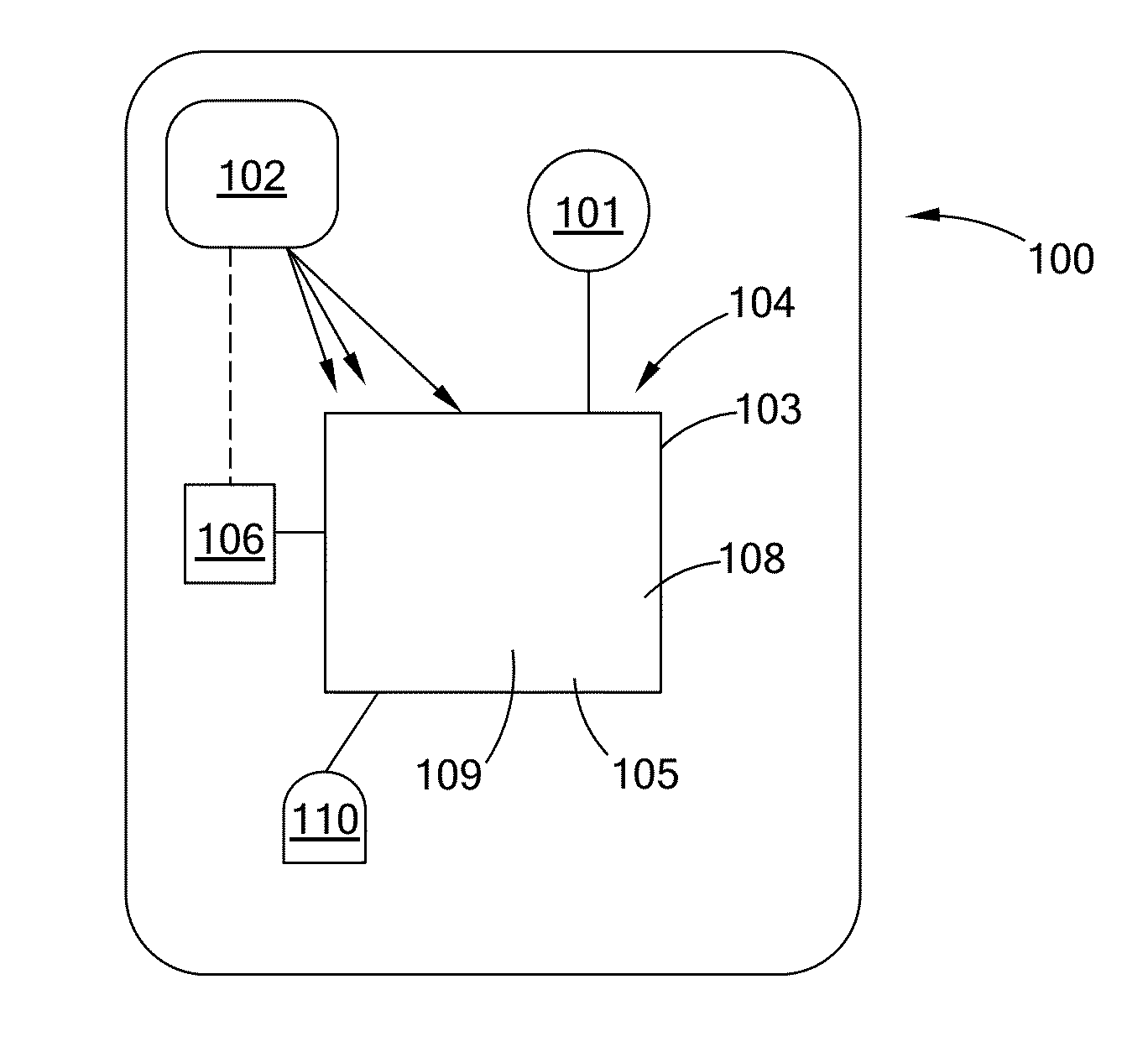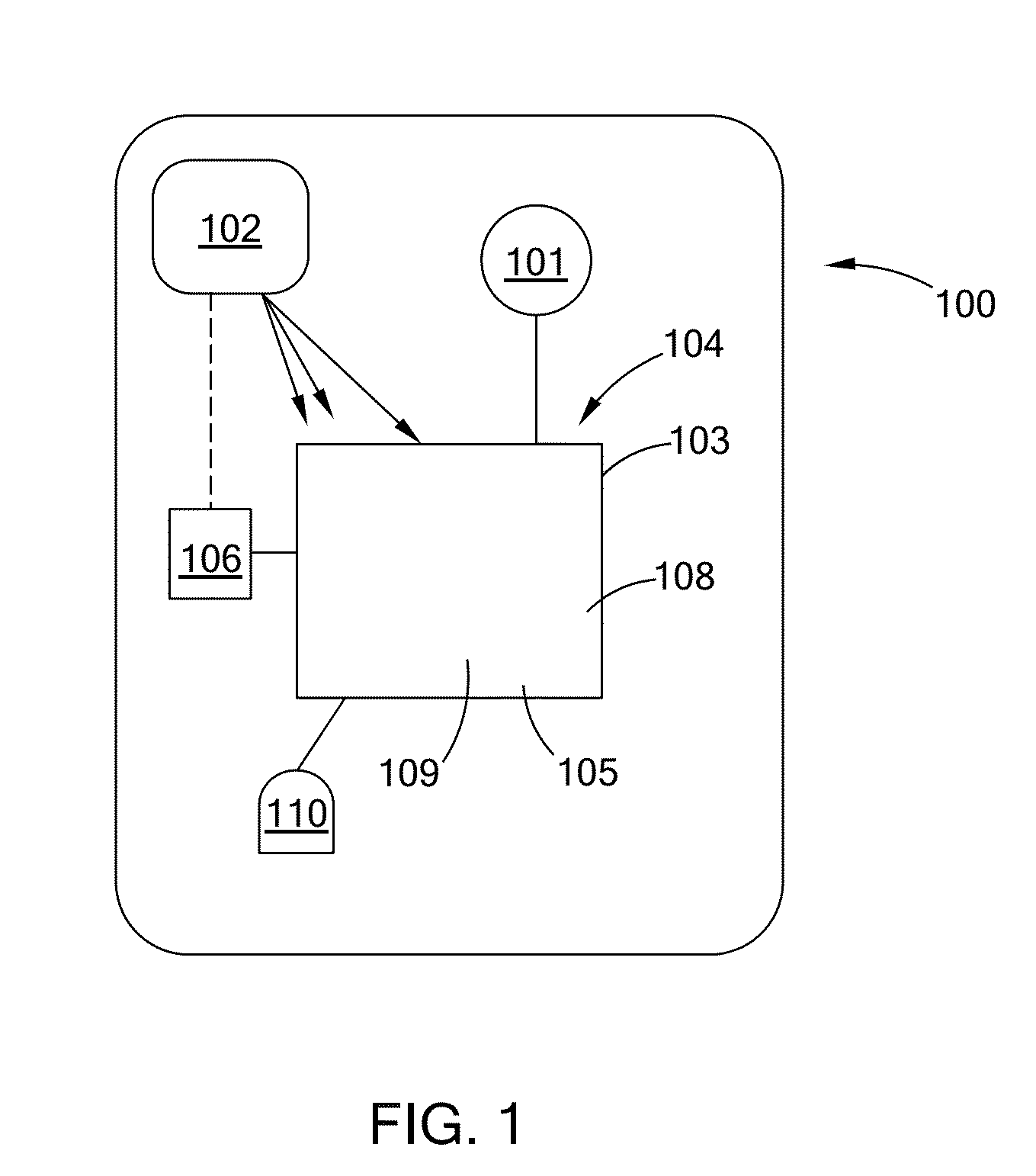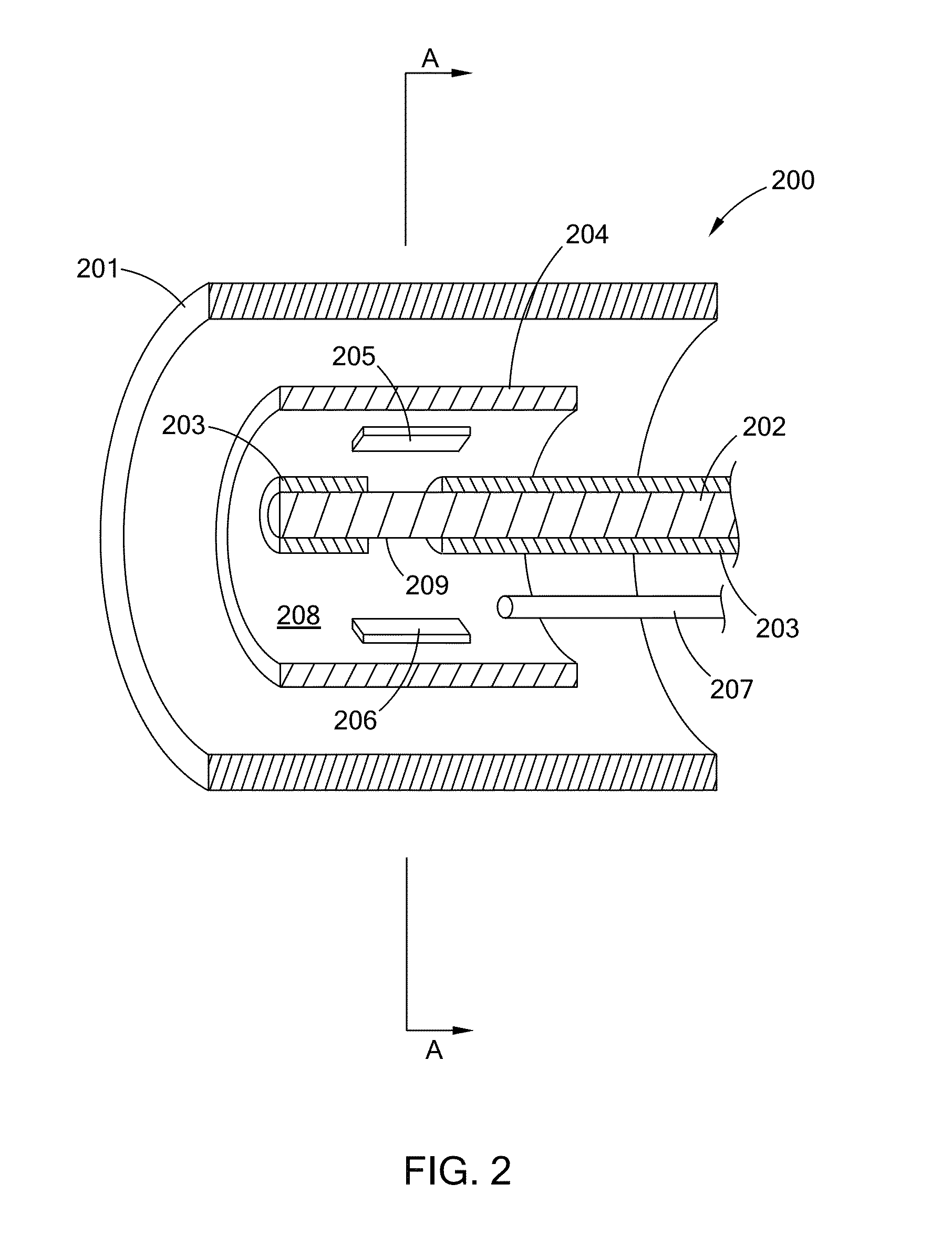Methods, devices and systems for fusion reactions
a technology of fusion reactions and devices, applied in the field of methods, devices and systems for fusion reactions, can solve the problems of large fusion device and system, large energy loss in conventional fusion system, complex, difficult to manage, etc., and achieve the effect of suppressing radiation loss, greatly reducing radiative loss, and suppressing electron mobility
- Summary
- Abstract
- Description
- Claims
- Application Information
AI Technical Summary
Benefits of technology
Problems solved by technology
Method used
Image
Examples
example 1
[0147]A controlled fusion device of the general type shown in the embodiment of FIG. 3, was operated to provide a controlled fusion reaction that produced high-energy alpha particles and helium. The first working material in the device is hydrogen. The second working material in the device is boron that is introduced into the device through boron nitride targets, e.g., plates, on the inner walls of the outer electrode, and a lanthanum hexaboride target, e.g., disc, that is inserted into the reaction chamber by way of a rod. The magnet provides a magnetic field of 0.5 Tesla to the internal components of the controlled fusion device. The controlled pressure chamber is purged. After purging, the controlled pressure chamber and fusion cavity are filled with hydrogen gas to about 3 torr and at ambient temperature. A voltage of about 1.4 kV is applied through a current-limiting resistor to the inner electrode, creating a plasma current of about 25 A, which imparts, due to the Lorentz forc...
example 1 (
Example 1(e)
[0156]The method and device of Example 1 is operated at a sufficient magnetic field and voltage to provide at least about 0.1 MMBtu / hour of thermal energy. This thermal energy is converted by apparatus known to those of skill in the power and electrical generation arts, such as heat exchangers, steam turbines, and electrical generators, to provide at least about 10 kW of electricity. One or more of the devices of Example 1 may be combined to provide greater thermal energy, to provide backup units should one go offline, which assembly can be associated with heat conversion devices known to those in the art.
example 2
[0157]The operation of the device along the lines of Example 1 was repeated over 400 times. Each time the evidence of the creation of helium and high energy alpha particles was observed.
PUM
 Login to View More
Login to View More Abstract
Description
Claims
Application Information
 Login to View More
Login to View More - R&D
- Intellectual Property
- Life Sciences
- Materials
- Tech Scout
- Unparalleled Data Quality
- Higher Quality Content
- 60% Fewer Hallucinations
Browse by: Latest US Patents, China's latest patents, Technical Efficacy Thesaurus, Application Domain, Technology Topic, Popular Technical Reports.
© 2025 PatSnap. All rights reserved.Legal|Privacy policy|Modern Slavery Act Transparency Statement|Sitemap|About US| Contact US: help@patsnap.com



